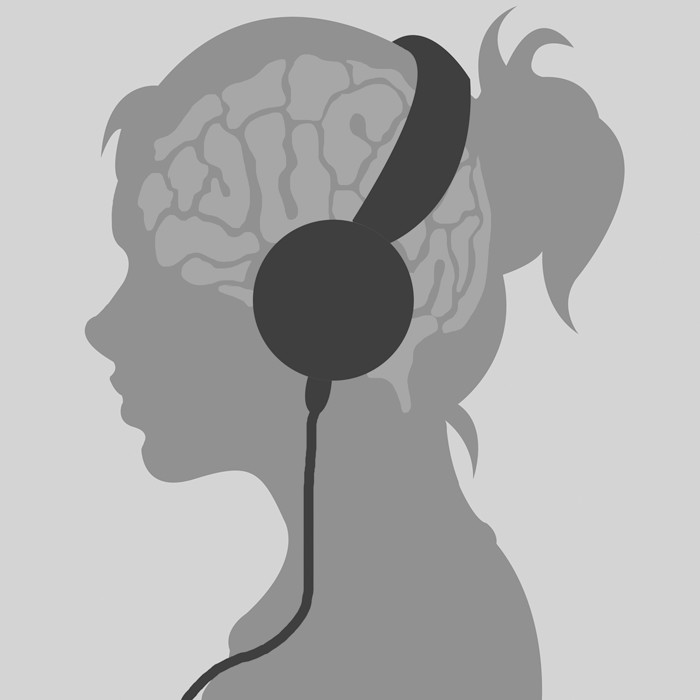Most students at the library have their headphones on while studying or writing. When walking into the Oviatt Library, the music blasting from students’ earbuds enchants visitors upon entry and echoes throughout the hallways.
With so much musical digestion among students and their studies, the connection between sounds and learning seems strong.
CSUN psychology professor Elise Fenn said that music not only affects the brain, but also can influence learning in more indirect ways.
“Music can impact your emotions, and emotions can influence your memory. The effects of music on learning and memory depends on many factors,” said Fenn. “Music influences learning and memory in some more indirect ways.”
Fenn referred to Australian research to back up her claim. In an experiment to detect musical correlation with emotions, researchers found angry heavy metal fans become less stressed and more inspired after listening to the heavy metal. Another study at the University of San Diego demonstrated reduced stress in individuals when they listened to classical music.
“Classical music reduced stress compared to other types of music such as jazz or pop,” said Fenn. “Having a similar mood when you learn information and when you later recall that information, during an exam could increase your memory ability.”
Fenn added that researchers suggest that humans tend to tag memories with different cues, like the location of individuals were at when they learned the information. This helps individuals accurately recall the information later.
Basic psychology proves that neurons help transfer information through the brain. Whenever it takes in new information, through the ears, eyes or skin, those neurons “talk to each other” by firing off electrical pulses, or brainwaves.
Two main factors can influence music’s impact on memory: the type of information a student learns and the type of music the student listens to. The type of information determines how easy a student could be distracted.
The first factor is called selective attention: when a student chooses to focus on the given task and to ignore distracting noises.
“Imagine that you are sitting at coffee shop, and there is lots of background noise including music,” said Fenn. “If you’re working on a very difficult homework assignment, you’re most likely able to tune out the surrounding background noise and focus intently on your given task.”
This is when distraction occurs, or when an individual decides to take on an easier task. That task is so easy that the individual will focus on other things. There was more mental capacity available to occupy because you were working on an easy task.
In addition, the ability to multi-task depends on the type of work that someone is doing.
If the work involves word or word comprehension, one may have trouble focusing because both tasks involve similar channels of processing.
When the task involved geometry or another task requiring visual and spatial processing, one might be less distracted by the conversation as well.
If an individual is doing two things on one channel, the chances of distraction increases.
In 1991, Dr. Alfred A. Tomatis wrote a book called “Pourquoi Mozard?” which studied classical music stimulation of the brain. Dr. Tomatis argued that listening to Mozart’s music could have a beneficial effect on the brain.
In contrast, Fenn said that the irrelevant speech effect showed that listening to background sounds, including speech or music when learning a new list of words, reduces ability to recall those words when compared to complete silence.
However, if you are going to listen to music some research suggests that instrumental music is less damaging to recalling memories than vocal music.
Back in the Oviatt Library, a swarm of students listen to music while studying or doing homework.
Andrea Castaneda, 22, liberal arts student is no different. Castaneda listens to specific genres while studying.
“I like to listen to instrumentals, soundtracks or classical,” Castaneda said.
Castaneda prefers specific genres to help her concentrate with specific topics. Something upbeat or crazy would distract her.
“When I study I listen to very mellow, calming music as opposed to upbeat music normally,” said Zoe Conley, 19, business marketing major.
Music can help regulate emotion, an important part of helping students focus and retain relevant information.
Some teachers allow music during student’s works. CSUN Geological Sciences Professor Kyle Johnson, explains that he does see a difference while music is being played.
“Students are happier and communicate more – with each other and [as a professor],” said Johnson, who sees the students interacting more when the music is played in his class. “It makes it more fun for everybody and keeps people interested longer, all while seemingly not diminishing productivity.”
On the other hand Johnson argued that there are negatives to music as well.
“It can elevate the mood enough that one becomes unproductive
or it can distract deep thinking,” said Johnson, who thinks music repels
negativity. “Music keeps me at the task at hand, helps me stay calm
through it and makes it fun all at the same time.”






